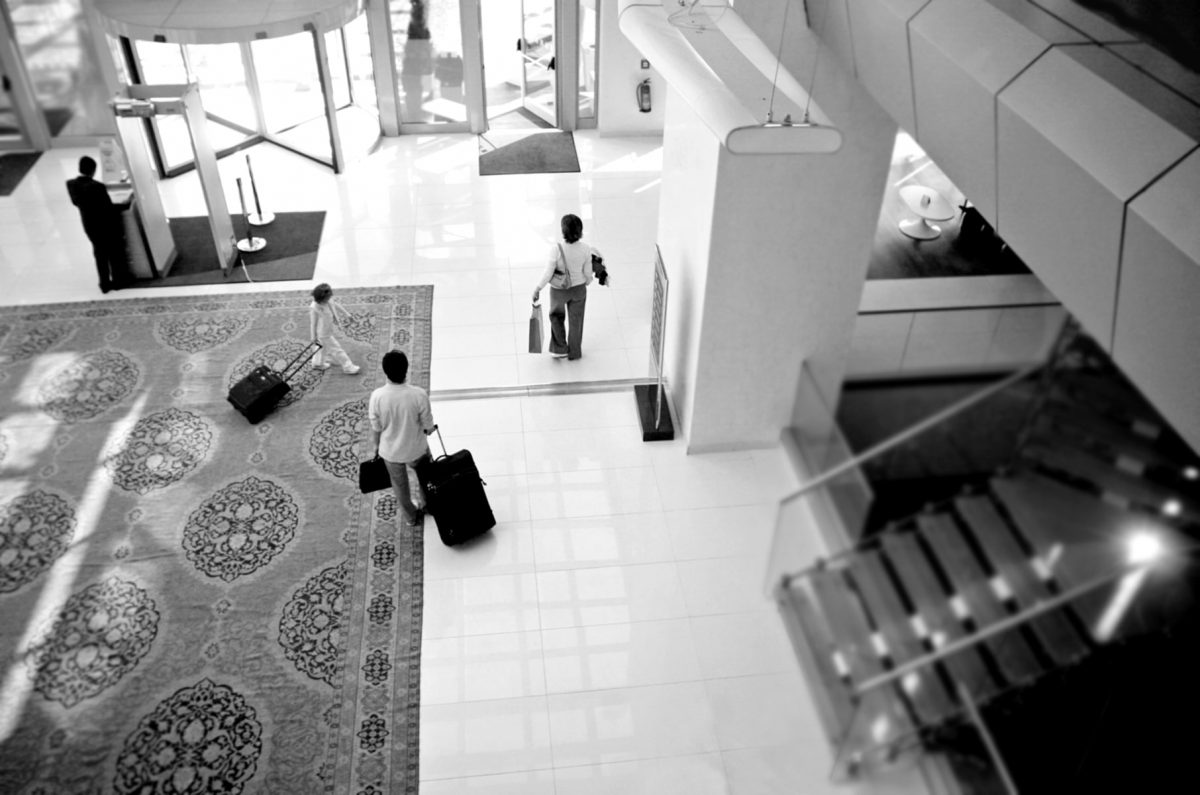
Since the Cold War, there have been dozens of classic spy novels and movies that have caused some people to look over their shoulder or question what that sound was on the other end of the phone line. But what about in the real world, like in our own homes or hotel rooms? Being spied on in the place you sleep while you’re away on vacation is a disturbing and haunting thought that gives rise to someone’s caution and paranoia.
In Minneapolis this past December, multiple rooms in a Hyatt hotel were discovered to have pinhole cameras surveilling and spying on guests, bringing to life one of everyone’s most terrifying “what-if” scenario when traveling. While investigators are still looking into the matter in Minnesota, it brings up questions surrounding the legality and liabilities of bugging guest rooms in hotels. Are recording devices of any kind actually legal? How are hotels protected from this?
Here’s some more information on what’s legal and what’s not when it comes to recording devices in hotels.
Taking A Look At Recording Devices
When a room is considered a private area, a camera should not be pointing in that direction, such as an outside camera for security. This could be the bathroom inside, a bedroom window, or other areas that are considered off-limits. Under the federal wiretapping statutes, it’s illegal in every state to audio record anyone without they’re being aware of it, however, there’s no law against hidden camera usage.
Currently, there are about 13 states that have made it illegal to install or use cameras in private areas, such as hotel rooms, without authorization from those being recorded. And with the general theme that no one is aware of this, it could put hotels and their management companies right in the middle of major legal problems.
Cameras in hotels are no new thing as even the most basic hotels have cameras placed for security purposes, such as in hallways, pools, lobbies, and parking lots; but these are public areas. In a hotel, visitors are paying for privacy and there’s an expectation that that privacy will not be, in any way, encroached upon or distorted.
In the slim off-chance that something like this happens, hotels are right to have the right kind of insurance to protect them when having to go through litigation or inspections, working with lawyers and law enforcement. The important thing is to get to the bottom of why recording devices were discovered, but it’s still important to ensure that resources are taken care of through insurance programs for resort hotels.
Insurance programs for resort hotels, such as Directors & Officers Liability insurance, can provide coverage for legal costs, and will also include coverage for independents who may not be technically board members who were acting as a member of the board. This means that the hotel association’s builders, developers, and other similar contractors will be covered under a D&O insurance program.
While it would seem like an obvious course of action to put the blame on hotels, it’s somewhat hard to believe that a major hotel chain or resort would jeopardize its reputation or status by installing recording devices for any purpose. While stranger things have happened, it doesn’t usually fit the bill. However, those who discover recording devices would be right to suspect foul play on behalf of the hotel, raising the potential for legal action to be pursued.
About Kevin Davis Insurance Services
For over 35 years, Kevin Davis Insurance Services has built an impressive reputation as a strong wholesale broker offering insurance products for the community association industry. Our president Kevin Davis and his team take pride in offering committed services to the community association market and providing them with unparalleled access to high-quality coverage, competitive premiums, superior markets, and detailed customer service. To learn more about the coverage we offer, contact us toll-free at (877) 807-8708 to speak with one of our representatives.


